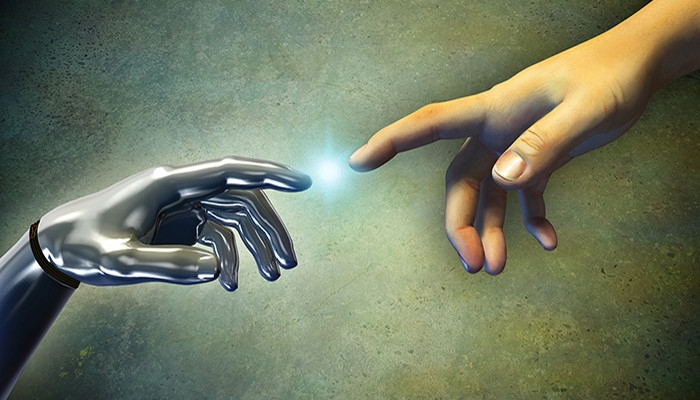Artificial Intelligence Applied
True artificial intelligence may not have been realised yet. However, recent tech developments have got entrepreneurs and businesses excited.
Last week I attended the fascinating Women in Machine Intelligence Dinner where I learnt about the quest for AI and how it has led to useful developments in machine intelligence and deep learning.
So how is AI tech being applied today? And what does the future hold for this exciting area?

Douglas R. Hofstadter, the Pulitzer Prize-winning author of Gödel, Escher, Bach: An Eternal Golden Braid, once wrote that, “Sometimes it seems as though each new step towards AI, rather than producing something which everyone agrees is real intelligence, merely reveals what intelligence is not.” Though these lines were written over thirty-five years ago, they still, for many involved in AI, ring frustratingly true today.
However, a lot has changed in thirty-five years. And even if the search for AI, as Hofstadter predicted, has taken place in an exasperating two-steps-forward-one-step-back fashion, we have still, on the whole, been moving forwards. So, whilst true AI remains as elusive as ever, as Irene Higgins, Research Scientist at Google DeepMind, made clear in her talk “Capturing the Ghost of Intelligence”, the knowledge and expertise that the search for it has generated is now being put to use in many industries – including app development, education and learning, and e-commerce.
In the e-commerce sector, the introduction of cognitive technologies and “smart data” are being used to facilitate more efficient, personalised, and automated customer journeys. One e-commerce area obviously improved by AI technology is product recommendation. E-commerce sites want users to find what they are looking for as quickly as possible, and “smart” algorithms are now able now “learn” and predict which products users may be interested in from their previous behaviour.
And it’s not just product recommendation. AI is also transforming visual search, image recognition, and voice powered search. It has also given rise to an assortment intelligence tools (which facilitate an unprecedented level of 24/7 visibility and intelligence into competitors’ product assortments) and intelligent agents (which match buyers with sellers, facilitate transactions, and provide institutional infrastructure).
In the world of app development, AI tech is being used to make apps run more smoothly. Though generally invisible to the user, AI is being used in an assortment of ways to make the consumer experience slicker – for example, being implemented as digital assistants that take on the role of intermediary search engines, and to aid small intellectual chores such as finding out information and trivia, and organising meetings.
It’s also interesting to see websites such as Wikipedia, which has been developing an AI assistance algorithm that will trawl through the huge amount of information on that site in a proactive search to find errors and inconsistencies, and Google, which has developed RankBrain, an algorithm that identifies semantic patterns in human speech and delivers results that match the user’s intention, are implementing AI to better their offerings.
And, outside of the worlds of app and web development, there has, for at least 20 years, been continued research into the integration of AI with learning and education. In her presentation, Kerstin Dautehahn, Professor of Artificial Intelligence at the University of Hertfordshire, spoke about a future in which social robots may be able to help autistic children interact and improve their social skills.
These are just the tip of the iceberg; AI is finding real-world implementation in a whole range of different places. But what is most surprising is the pace that these AI developments are being produced. Now that AI research and development has found a capitalistic application, the two-step-forward-one-step-back dance of AI development has found a new urgency. And this raises the question: will we ever see true AI?
What AI developments have caught your eye? And do you think we will see true AI within our lifetimes – or, indeed, ever?
Email me your thoughts.
